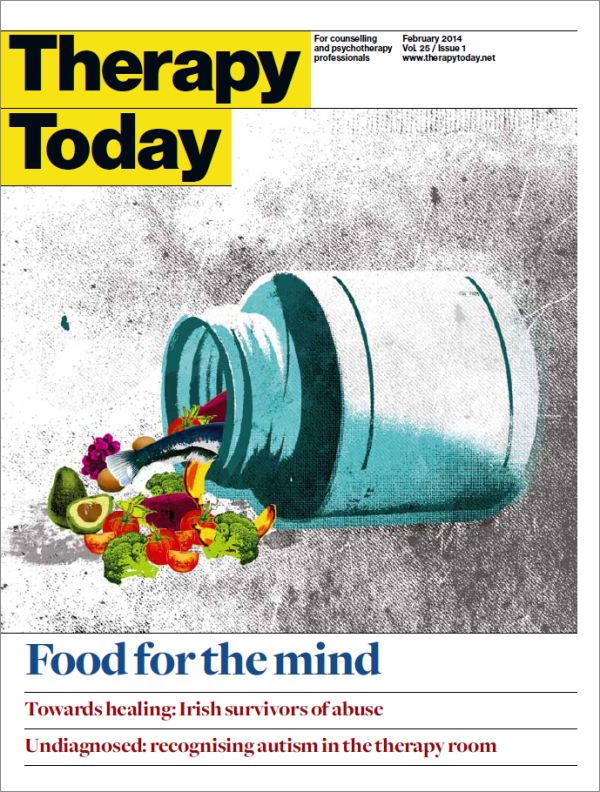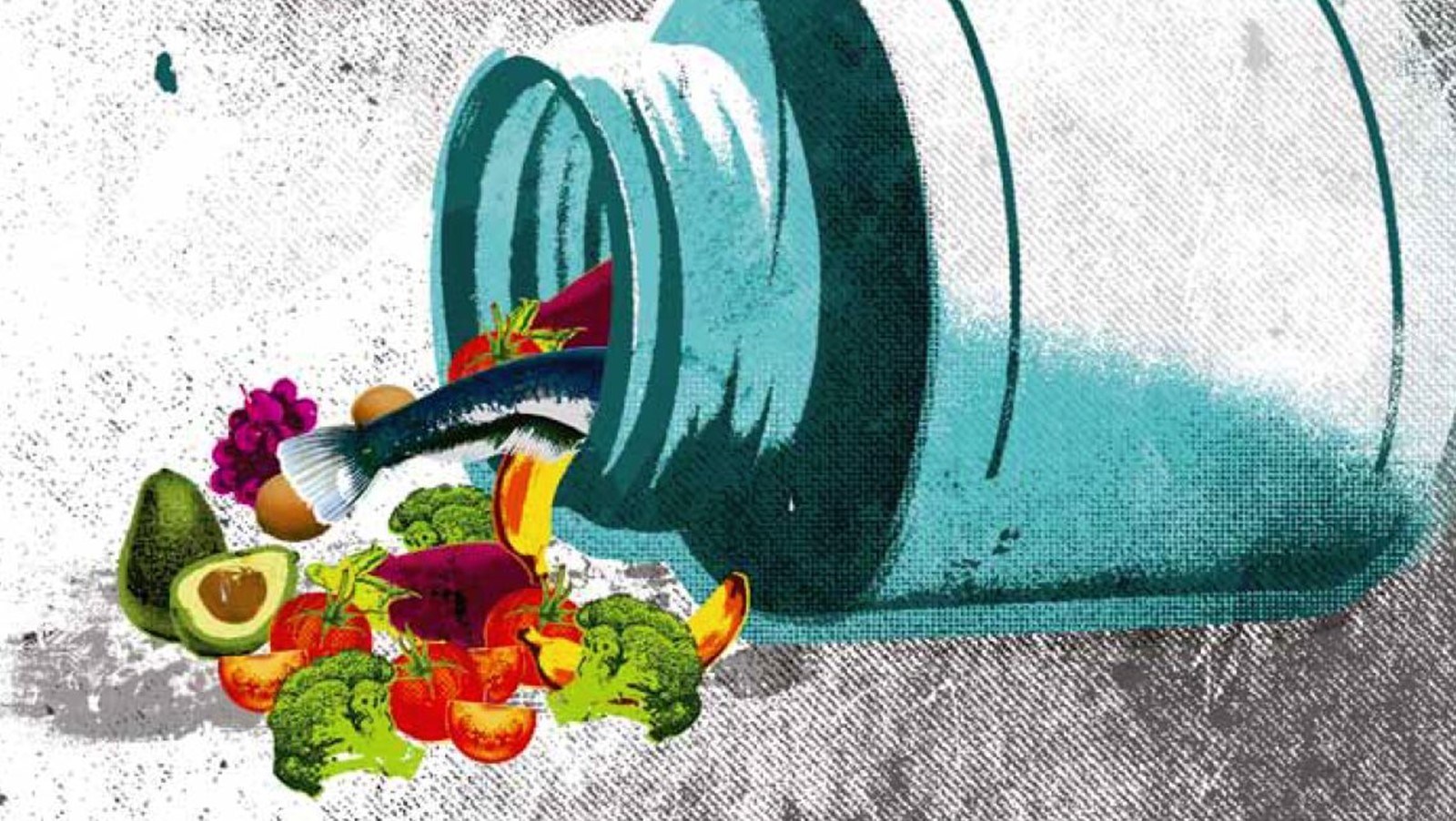In this issue
Features
Finding a way towards healing (free article)
Catherine Jackson talks to counsellors and clients of a support service for victims of Catholic clerical and institutional abuse.
Food and mood
Nicola Terry argues that counsellors should pay more attention to the effects of diet on mood and emotions.
The power of shared reading
Bernadette Lynch and Gina Neale describe the therapeutic benefits of reading groups.
Autism in the therapy room
A diagnosis of autism can transform the lives of people struggling to understand why they don’t fit in, writes Caroline Hearst.
Feminism in the therapeutic space
Surahbi makes the case for taking a feminist approach when counselling survivors of gender-based violence.
Regulars
In practice
Susan Dale: Hope out of charity
In the client's chair
Allie Millward: Naming the elephant
In the supervisor's chair
Rosie Dansey: Looking back, going forward
The researcher
Barry McInnes: Lumbering towards extinction
Talking point
Nyamiye Hermenegilde: A small piece of care and love
How I became a therapist
Mehmet Akkurt
Dilemmas
The uninvited guest
The interview
Windy Dryden: The business of living
BACP
From the chair
Amanda Hawkins: Quality and quantity

Members and subscribers can download a pdf of this issue from the Therapy Today archive.
Editorial
In our cover article Nicola Terry asks why therapists don’t take more interest in what their clients eat. We know enough about the links between nutrition and mental health, so why would we ignore something that could be a major contributor to depression or anxiety? As Nicola points out, if a client were telling us that they were drinking heavily every night and complaining of headaches, lethargy and depression, we would surely discuss this with them; so why not when it comes to food?
Nicola describes how she has developed her awareness around nutrition through her work with clients who are living with HIV, where issues affecting the physical body are constantly being brought alongside psychological issues in the therapy room.
Also in this issue, Catherine Jackson reports on the work of Towards Healing, a counselling service in Ireland set up to provide therapy for people who suffered clerical, religious or institutional abuse in institutions run by the Catholic Church in Ireland. Last year this service provided 31,400 counselling sessions to clients. It regularly receives a call from someone over 70 disclosing their abuse for the first time and seeking a referral to talking therapy. Many of the clients’ stories are the stuff of nightmares – childhoods spent in a culture of torture, kept secret for a lifetime. It is moving to hear of healing beginning after clients finally find words to describe what has happened or find a ‘family’ for the first time in groups with other survivors.
One thing that struck me in some of the survivors’ accounts was the cyclical nature of the abuse – being carried out in some cases by the older girls in the institution. ‘I don’t blame the older girls now,’ says one survivor who was subjected to 18 years of neglect, sexual and emotional abuse and cruelty. ‘They were doing to me nothing more or less than what had been done to them.’ I wonder how the perpetrators of abuse will heal themselves? Will therapy play a part in their coming to terms with what they have done?
Sarah Browne
Editor
